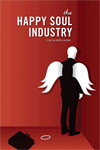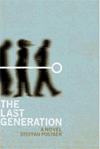Play Misty for Me
July 27, 2020

Everyone experiences situational depression. Conflict. Unresolved resentments. Sometimes it really is just the humidity. Having a bad day. You either accept the situation or change it. Regardless, it always ends. It is not clinical. Professional help and medicine are seldom required. What you are experiencing is neither clinical nor situational. Sadness descends upon you like mist. By no means pleasant it isn’t debilitating either. You can see through it. You can operate heavy machinery. You probably won’t drink over it.
Many people insist on finding a culprit for their misery: someone or something to blame. The world is filled with people making this mistake. One feels like shit because of a spouse, a boss, a relative, a neighbor, the President of the United States. You know better than to assign blame for melancholy. Yes. You’d like to make the blues situational. Then you could rectify the situation or be its victim. For years, you were the blindfolded child swinging madly for a target. Creating situations to meet your depression was understandable… and also idiotic.
You now have healthy ways to mitigate woe. AA taught. Others you picked up all by yourself. Be of service. Go for a run. Pray. Basically, do anything but wallow in it. You cannot think your way out of depression. If anything, thinking caused it. In the wild, animals do not get depressed because they do not sit around thinking. Food and shelter is their constant priority, their only priority. Put a bear in a zoo and it becomes depressed, anxiously pacing back and forth, sullen and surly. Domesticated, it turns neurotic.
Your mother was (and maybe still) clinically depressed. She has spent her whole life (and so yours) dealing with this problem. You read somewhere that far more women are clinically depressed than men. Maybe that’s because historically women have been domesticated more than men, anxiously pacing back and forth in their kitchens, sullen and surly in equal measures.
To be Continued.
Mist
February 12, 2020

Everyone experiences situational depression. Conflict. Unresolved resentments. Sometimes it really is just the humidity. Having a bad day. You either accept the situation or change it. Regardless, it always ends. It is not clinical. Professional help and medicine are seldom required. What you are experiencing is neither clinical nor situational. Sadness descends upon you like mist. By no means pleasant it isn’t debilitating either. You can see through it. You can operate heavy machinery. You probably won’t drink over it.
Many people insist on finding a culprit for their misery: someone or something to blame. The world is filled with people making this mistake. One feels like shit because of a spouse, a boss, a relative, a neighbor, the President of the United States. You know better than to assign blame for melancholy. Yes. You’d like to make the blues situational. Then you could rectify the situation or be its victim. For years, you were the blindfolded child swinging madly for a target. Creating situations to meet your depression was understandable… and also idiotic.
You now have healthy ways to mitigate woe. AA taught. Others you picked up all by yourself. Be of service. Go for a run. Pray. Basically, do anything but wallow in it. You cannot think your way out of depression. If anything, thinking caused it. In the wild, animals do not get depressed because they do not sit around thinking. Food and shelter is their constant priority, their only priority. Put a bear in a zoo and it becomes depressed, anxiously pacing back and forth, sullen and surly. Domesticated, it turns neurotic.
Your mother was (and maybe still is) clinically depressed. She has spent her whole life (and so yours) dealing with this problem. You read somewhere that far more women are clinically depressed than men. Maybe that’s because historically women have been domesticated more than men, anxiously pacing back and forth in their kitchens, sullen and surly in equal measures.
This too shall pass your mother liked to say, even if she didn’t believe it. But she was right. Mist or fog, it evaporates. At times you embrace sadness, its depth and gravitas. But like an old friend he can overstay his welcome. Then you have to wait him out. Drag him along on your errands. Enduring his sourpuss and cynicism. Sometimes, you might ditch him on a hike. He couldn’t keep up in the gym either. If those things failed, you brought him to a meeting, tossing him center circle with everyone else’s shit.
Relief comes. And when it does you embrace it. Sing its song for as long as you can, feel your body electrified by it. Such joy is a blessing. And fleeting. A feminine spirit, she does as she pleases. An ephemeral pink cloud, you keep the window open for her.
You do miss the excitability of grandiosity. But ridding this was a fair price to pay for the leveling of valleys. Roller coasters are thrilling but no way to live. Soberly, you tread flat terrain.
But still…
There is the matter of your lesser addictions. Gluttony. Lust. It’s paradoxical, leaning in to them while turning away. You cannot resist the siren’s song.
(Author’s note: This is a small section from an autobiographical novel I have been writing for some time. Would you like to read more? Or maybe there is something I can help you write?)
Like anyone, creative people get angry. The competition for ideas and constant criticism of them gets to us. As can a power mad account executive or yet another contrarian for a client. We see it all the time in TV shows but anger at work is seldom a topic discussed in a serious way. We may experience anger as online vitriol or behind closed doors. Occasionally it takes the form of a blow-up during a meeting. I’ve been on both sides of all of the above scenarios.
Anger, as we know, is almost always directed at a person or group of people. We may lose our temper and go off on that person. Or we stew in resentment, grumbling and sulking, remaining silent as a stone. If we are mature, we ask for a meeting with the subject of our anger to clear the air.
Alas, many of us are not reasonable when we’re angry. After all, anger is a volatile emotion and it often interferes with sound thinking. It does to me. I have trouble thinking straight. It’s almost like a bad trip. A strange, primitive rush overtakes me and I become flush. I may say and do regrettable things. I am outside myself looking down upon a beast. Mr. Hyde. The Hulk. God help those in the path of my wrath. Fortunately, for most of us this kind of anger is quite rare. Resentment is far more common. Passive aggressive behavior can spread like weeds in an ad agency –or any company. The petulant child is less overt (obviously) than tantrum maker but just as hurtful in the long run.
We always hear about the negative effects anger has for those on the receiving end of it. But it is also hurts the deliverers. Being in anger might be useful in therapy or righting certain wrongs but by and large it is a negative emotion and a defect/disease for those who are in it.
The angry outburst is ugly. But I feel the aftershocks are even uglier. An emotional hangover is debilitating and often leads to more bad behavior (lying, backstabbing, gossip, etc.), which, in turn, hurts our nestlings and us worse than the initial tantrum. Unless one is a Teflon tyrant these disorders degrade us professionally. But they kill us on a personal level, too.
We will be shunned but deeper down we rot from anger. Enough rot and we become garbage. Even a little rot is intolerable. To be reasonably healthy, as much rot as possible must be excised. All of it to be happy. That is why I would rather have the flu than carry around an emotional hangover. Dr. Bruce Banner aka The Hulk famously said “you wouldn’t like me when I’m angry.” What the comic book does not tell us is how much you are despised a day later.
Have a nice day. It’s better for all of us.
Gratitude in Adland: taking a moment for what we often take for granted.
November 27, 2014
For the refuge it provides…
In the spirit of Thanksgiving, I’m compelled to speak about gratitude. After all, gratitude is the very definition of giving thanks. Many of us (myself included) often experience a lapse in gratitude. We get caught up in the business of work and the mostly silly dramas that govern our lives.
I once heard a parable that I’d like to paraphrase here:
Every day a group of men set out to forage in the savannah by their village. They ventured far in order to get to the forest and its abundance of resources. At the half way point of their journey existed a lone, large tree in which they took a break to rest and eat lunch. “A shame this tree,” one man said. “It has no fruit for eating.” The others agreed. “And its wood isn’t suitable for building either…”
And so on they complained. What the men failed to realize the great benefit the tree provided. In fact, the old tree was a refuge. Seemingly barren, it provided shelter from the noonday sun without which their journey would have been infinitely more treacherous. This critical benefit was lost on the men. As was the unity this resiting place fostered.
I recall a company meeting at my previous agency. We’d had a tough year. Morale was low. The employees were skeptical about their agency’s future. Many used the setting as a forum to voice their complaints: Management was inept, they cried. Our clients are bound to mediocrity. Woe is us!
During my turn to speak I told the story about the old tree. Though our agency was, in fact, beleaguered I wanted us to appreciate all that we had: jobs, community and a place to voice our grievances freely and without fear of reparations.
In some respects I was talking to myself. I shared many of my fellow’s misgivings but I wanted healing words. Not apathetic ones. We’d had plenty of those already. Change was needed. And change would come. But on that day I needed gratitude. I worked for one of the greatest advertising agencies in the world. It had been hobbled but it was still there. Despite our weakened position, so were we.
That first winter for the pilgrims was a brutal one. Many did not make it. Yet, a precious few did. With help from the Indians, they not only survived the second winter; they thrived. Despite their many hardships the frail community held a great feast. The rest is history.






 The Happy Soul Industry
The Happy Soul Industry The Last Generation
The Last Generation